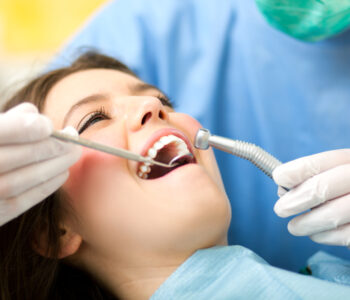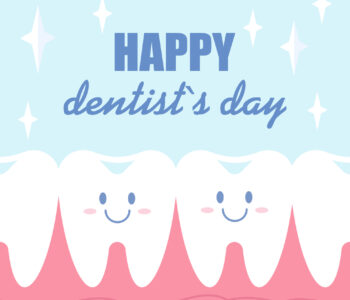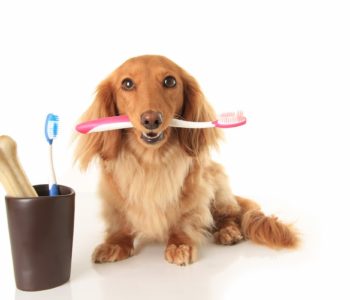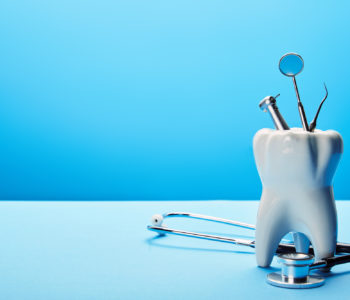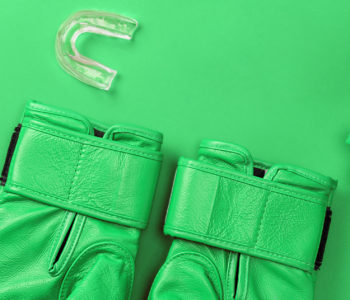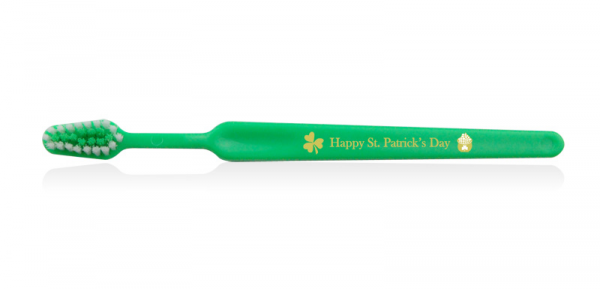 Dental Health
Dental Health
No Luck Needed for Healthy Smiles
We are but weeks away from St. Patrick’s Day – a day when everyone can claim some measure of Irish heritage while sipping green-dyed beverages after skipping out of work early. Starting with the early “Top o’ the morning,” greeting, followed by toasts of sláinte, the evergreen theme of the day is luck. Rumor has it that St. Patrick drove the dreaded snakes out of Ireland, and somehow leprechauns got in on the action, bringing us to modern-day St. Paddy’s revelers bedecked head-to-toe in green.
But what if your Irish luck is in short supply? What would happen, say, if you suffered some kind of dental emergency amidst all the sham-rocked celebrations? Fortunately, the team at Crown Dental is ready to roll up their sleeves and right any wrong you might encounter when it comes to your teeth and overall oral health. Whether you wind up on the business end of a shillelagh, slip on a stubborn patch of ice, or raise that glass with just a tad too much gusto, take a breath and take advantage of Crown Dental’s emergency dental services. Before you get in the spirit (pun intended), educate yourself on what counts as a dental emergency and what you can do about it, should you be so unlucky to suffer one.
What is a Dental Emergency?
Basically, a dental emergency is anything requiring the immediate professional care of your dentist. There are issues, of course, which you should address with your dentist as soon as possible, but what constitutes a dental emergency involves pain and suffering that cannot be ignored. The key, per the very nature of an emergency, is urgency.
If for example, you chipped a tooth, but aren’t suffering any pain, you can likely schedule an appointment with your dentist within a few days (more on that in a minute). However, if the nerve is exposed and you are uncomfortable, you’ll want to get in right away, as you’re likely dealing with a break, rather than a chip.
Granted, other dental issues like periodontis cause pain and need to be addressed right away for optimal treatment. But, a dental emergency will require an appointment that very day, or within 24 hours of the trauma. Fortunately, Dr. Chen leaves time in her schedule to accommodate these unforeseen upsets and will be able to get you in and fixed up in no time.
The two most common reasons you might need to see Dr. Chen with a quickness pose a real gruesome twosome. Meet Avulsion and Abscess…
Dental Emergency #1 – An Avulsed Tooth
Getting back to that shillelagh for a moment, or that patch of black ice, if you experience an avulsion, you’ll want to call Crown Dental right away. What is an avulsed tooth? Simply put, an avulsed tooth is a tooth that has been knocked free – or partially free – of your gums. The definition of avulsion is the tearing away of a structure or part either accidentally or surgically.
No matter the reason, if you somehow knock out a tooth, there is a chance you might still save it, provided you can locate it. If you have the tooth, it’s important that you rinse it and store it safely so that it is not further damaged when you bring it to your dentist. You’ll want to handle it by the crown only, and avoid touching the root, which has already suffered damage from the avulsion. A good idea is to store the tooth in whatever fluid you used to rinse it (recommendations include saline and milk) and take care not to disturb the container before handing it over to your dentist. Depending on the condition of the knocked-out tooth, your dentist might try to implant it, and subsequently monitor its health and growth in follow-up appointments.
It’s best to seek emergency attention within an hour of suffering an avulsion in order to increase your chances of saving the tooth, and address any bleeding in and around the tissues of the affected area, and prevent infection.
While we’re on the topic of infection…
Dental Emergency #2 – An Abscess
Although it’s unlikely you’ll suffer an abscess out of the blue, an abscess can result following damage suffered by a tooth. So, getting back to that avulsed tooth, part of the urgency in getting it treated is to avoid the occurrence of an abscess. What is an abscess? Basically, an abscess is an infection that has been left untreated. Abscesses grow between your teeth and gums, or at the root of your tooth.
Although abscesses tend to result from long-term dental neglect, and an infection that has festered, they do occur following trauma because the damaged tooth allows bacteria to enter, which causes an infection that can potentially extend not just to the root, but also right to the bone in your jaw.
Perhaps even more crucial than an avulsed tooth, abscesses commonly grow after you break, or even chip, your tooth. This is especially concerning in cases where you’ve chipped your tooth, but aren’t in pain. That’s why you still need to get in to see your dentist within just a few days of the chip. A chip provides a portal for bacteria to enter into the tooth and start wreaking havoc. The trouble here is that you don’t even know it’s happening, until you have a full-blown infection, erupting as an abscess.
While you might have a few days to address a chip, a broken tooth, though not avulsed, needs to be treated within 24 hours. What’s the difference between a chipped and a broken tooth? A chip usually looks superficial, in other words, just on the surface. A broken tooth will likely expose red or dark parts of the tooth, which make up its interior. So, this is basically a significant opening, allowing bacteria to enter easily and take root. Literally.
After you call your dentist to schedule an emergency visit, you’ll want to keep the area clean and avoid any chewing anywhere near that tooth. A liquid diet is the best course of action while you wait for your appointment, which, again, should be scheduled no later than 24 hours after suffering the break.
Celebrate St. Patrick’s Safely, with a Smile…
Dental emergencies can occur at any time, following all sorts of activities. There are some common sense measures you can take to cut down on dental emergencies. For example, if you play sports, and certainly if you’re children are involved in team sports, in particular, you’ll want to invest in good mouth guards. A mouth guard can mitigate damage from an impact on the field or court and should be worn whenever the ball is in play.
Safe driving habits, not just on St. Patrick’s Day, but every day of the year, can also help protect your grille – and we’re not just talking about your car. Unfortunately, accidents do happen. If you find yourself struggling with an unlucky streak, call the experts at Crown Dental, #603-521-7739. Karen’s got your back and is available to schedule a dental emergency service for you with Dr. Chen as soon as you need it.
Of course, we hope to only see you for routine dental care and wish you nothing but the luckiest of days! Should your luck run out, we’re still here to keep your smile healthy and happy.

